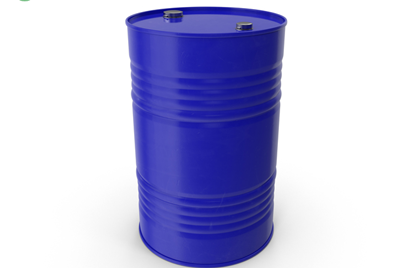
Olin will permanently shut a 230,000 mt/year chlor-alkali plant at its
Freeport, Texas, complex next year, the company announced Wednesday.
The world's largest chlor-alkali producer also will close down a vinylidene chloride plant at the complex, Olin said.
The shutdowns, to be completed "before the end of 2020," the company
said, will shave $35 million from Olin's annual operating costs. Olin's
fourth-quarter 2019 results will include pretax non-cash restructuring
charges of about $65 million associated with the shutdown plans, the
company said.
"With today's announcement we have taken necessary steps to reduce
our annual fixed costs, align our production capacity with the current
needs of the marketplace and focus on the chlorine derivatives that
generate the most value for the organization," Olin CEO John Fischer
said in a statement.
Chlor-alkali involves production of chlorine, of which caustic soda
is a byproduct. Chlorine mixed with ethylene is the initial step in
manufacturing construction staple polyvinyl chloride, while caustic soda
is a key feedstock in the alumina and pulp and paper industries.
Vinylidene chloride is an intermediate used to manufacture plastic food wrap and solvents used to clean electrical machinery.
Olin's announcement came as US spot export caustic soda prices this
week fell to their lowest level in nearly a decade amid sluggish global
demand. S&P Global Platts assessed spot export caustic soda prices
Tuesday at $195-$205/mt FOB USG based on a fixture done at $200/mt FOB
USG, the lowest for spot material since prices were assessed at $195/mt
FOB USG February 16, 2010. Prices have fallen 51% from this year's high
of $410/mt FOB USG March 19, reflecting global weakness amid economic
slowdowns in China and Europe and what several US companies have called
an industrial recession in the US.
SHARP DROP IN Q3 EARNINGS
Olin last month reported a 77% decline in third-quarter earnings
amid lower volumes and prices, and Fischer said during the company's
earnings call that Olin expected weak demand fundamentals to last
through year-end.
He said the company saw a significant demand slowdown from a broad
spectrum of customers, in sectors including alumina, pulp and paper,
automotive, urethane, agricultural, refrigerant, electrical laminate and
industrial coatings.
Fischer also said last month that Olin expects long-term demand growth and stronger prices given minimal capacity additions.
As of 2018, Olin estimated North America has 17 million mt/year of
chlorine capacity and 18 million mt/year of caustic soda capacity, or
17% of worldwide chlor-alkali capacity, according to the company's
annual regulatory filing with the US Securities and Exchange Commission.
SHINTECH TO EXPAND IN LOUISIANA
While Olin's shutdown plans could reduce that overall output,
Shintech, the US arm of Japan's Shin-Etsu, aims to start up a $1.49
billion expansion across the PVC chain at its Plaquemine, Louisiana,
complex, in the second half of 2020. Shintech's additional 635,029
mt/year of chlorine and 725,747 mt/year of caustic soda output will more
than compensate for Olin's chlor-alkali shutdown.
Shintech also is adding ethylene dichloride, vinyl chloride monomer and PVC capacity as part of that project.
Westlake Chemical aims to begin starting up a PVC expansion at its
Geismar, Louisiana, complex this month, and Formosa Plastics is planning
a PVC expansion at its Baton Rouge, Louisiana, operations to start up
in late 2021.
Shintech is the sole US chlor-alkali producer expanding chlorine and caustic soda production.

